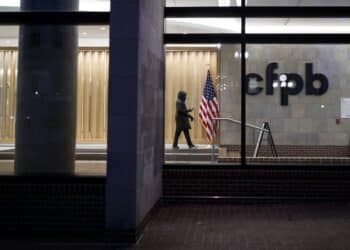Santander Pays $26M For Loans Deemed ‘Unfair’

Santander Consumer USA entered into a written agreement with the Federal Reserve Bank of Boston on March 21, and agreed to pay $25.9 million to resolve an investigation in two states regarding the financing and securitization of subprime auto loans, the company revealed in a Securities and Exchange Commission filing today.
Investigations were being conducted by attorneys general in Massachusetts and Delaware regarding allegations that Santander facilitated unfair, high-rate auto loans for thousands of car buyers; funded loans without a reasonable basis to believe borrowers could afford them; and originated loans from certain dealerships it knew had high default rates due to inaccurate data on loan applications, Massachusetts Attorney General Maura Healey said. The U.S. Department of Justice has also been investigating similar claims.
“The Reserve Bank has identified deficiencies in SC’s compliance risk management program, including, but not limited to deficiencies in SC’s consumer compliance risk management program,” the written agreement states. “Other federal and state authorities have cited violations of certain federal and state consumer compliance laws and regulations by SC.”
Santander will also be expected to submit a written plan to “strengthen board oversight” and allocate adequate resources to ensure the board oversees compliance, the agreement states.
“In the last 18 months, our new management team has taken significant steps to strengthen our business practices and controls,” Santander said in a statement.
This fine is likely still a relic of previous years when the regulatory eye was more fixated on the auto finance sector, Christopher Donat, managing director of equity research at Sandler O’Neill + Partners L.P., told Auto Finance News. If there was still an ongoing problem within the company, O’Neill said he would expect more leadership changes down the pipeline, but that does not seem to be the case.
Healey said this settlement was part of a larger industry-wide investigation into subprime auto securitizations, but Santander stressed in its statement that this particular settlement only addresses originations, not its securitization practices.
The investigation also alleges that Santander referred to a particular group of dealerships as “Fraud Dealers,” yet continued to fund loans from these indirect auto sources, Healey’s office said.
This isn’t the company’s first agreement with the Federal Reserve Bank of Boston, as this case follows the $5.5 million agreement the two parties signed in 2015, regarding expensive insurance coverage.
Santander will pay $22 million to resolve the latest Massachusetts case, including $16 million in relief to 2,000 consumers. The lender will also pay $3.9 million to resolve the Delaware case, including $2.88 million into a trust for the benefit of Delaware consumers, Delaware Attorney General Matt Denn said.
Learn more about the tech and disruption in the industry at Auto Finance Innovation 2017, May 17-18 in San Diego. Visit www.autofinanceinnovation.com and to learn more about the Auto Finance Risk & Compliance Summit, visit www.afrcs.com.














